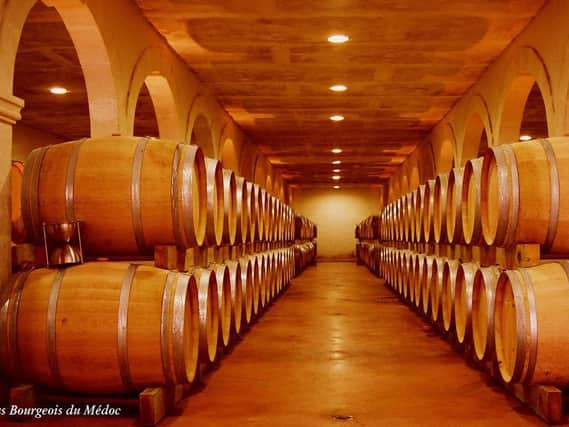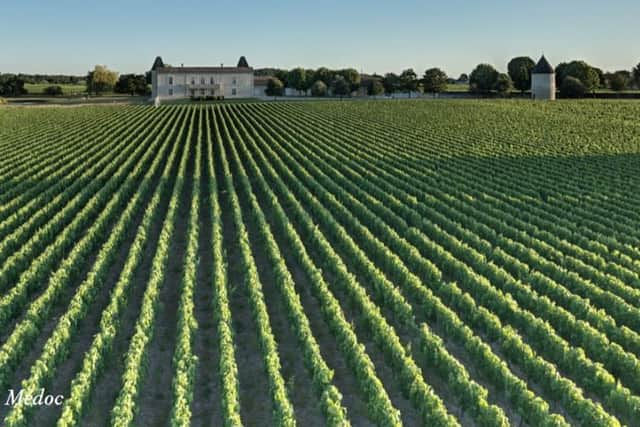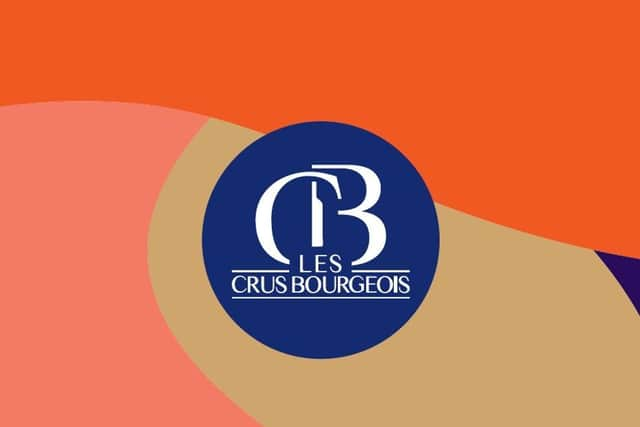Wine Time: If you love a red wine from Bordeaux seek out the labels from the Crus Bourgeois


I have a friend (well more than one person likes me, so let’s say I have two) who is incredibly nervous about buying wine that she doesn’t understand.
By that, she doesn’t understand what the labels mean and if she’ll enjoy the wine.
Advertisement
Hide AdAdvertisement
Hide AdMy friend wants to know more about a wine before handing over her hard-earned cash.


This is one of the reasons why the wines of the New World are so popular: There’s no messing. In most instances, how the wine is made and the grape variety is on the label. Job done.
In many of the Old World countries that’s not the case.
But there are signs that you can look for on labels if you’re looking for reassurance on quality.
The Crus Bourgeois du Médoc provides one.


I’ll backtrack a little here. I’ve spoken about the Bordeaux 1855 classification system in this space before. On the instructions of Napoleon III, Bordeaux merchants ranked around 60 châteaux based on the quality of the wines at the time.
Advertisement
Hide AdAdvertisement
Hide AdThose five tiers of classification still drive the market today with the same châteaux ... but hang on a minute … the system has hardly been reviewed for 170 years ago and for economic and cultural reasons its not likely to change any time soon.
Now step in the Crus Bourgeois; they are a group of châteaux in the Médoc.
They cover eight appellations including: Médoc, Haut-Médoc, Listrac-Médoc, Moulis-en-Médoc, Margaux, Pauillac, Saint-Julien and Saint Estèphe.
If you’re looking for quality Bordeaux wines at competitive prices you won’t go far wrong in seeking out wines labelled Crus Bourgeois.
Advertisement
Hide AdAdvertisement
Hide AdUnlike the 1855 system, these châteaux are reviewed every five years.
This year the Crus Bourgeois group has been celebrating the first anniversary of its five-year classification.
To gain that approval, producers are assessed under five ‘tick boxes’.
These include traceability and authentication; and so all bottles have a QR code so people can scan for details of producer and origin.
Advertisement
Hide AdAdvertisement
Hide AdIt also includes random tasting checks at the châteaux throughout the five-year classification. Keeping them on their quality toes.
Armelle Cruse, vice-president of the Alliance des Crus Bourgeois du Médoc, says the message is clear.
“We want to raise the entire Crus Bourgeois family as high as possible.”
There are three classifications châteaux can aspire to: Cru Bourgeois, then the higher categories of Cru Bourgeois Supérieur and Cru Bourgeois Exceptionnel.
Advertisement
Hide AdAdvertisement
Hide AdIn 2020, 249 producers were classified, about a third of the Médoc’s production.
Back to my friend then. Let’s call her Elaine. I’m always suggesting she looks out for Cru Bourgeois stamps of approval on these delicious Bordeaux reds.
Here’s a handful you can look out for:
Château Deyrem Valentin 2018, Cru Bourgeois Supérieur, Margaux (£31.99, Waitrose). I poured with a steak and garlic-flecked green beans.
A simple dish, made sublime with this elegant wine. It knows it will have much to offer in a few more years but for now is happy to tease its future by delivering ruby ripe soft plums and black fruits and that unmistakable Bordeaux cedar and spice. It was perfect with my salty steak.
Advertisement
Hide AdAdvertisement
Hide AdThe Co-op has a couple too. A Cru Bourgeois in Château Lamothe-Bergeron 2011, Haut-Médoc (£14). Look, it’s 10 years old and catch it if you can. Delicious plums and oaky notes.
Then to the top level with Château d’Arsac 2018, Cru Bourgeois Exceptionnel Margaux (£23) which is so confident in itself it could be the lead violinist in a Cru Bourgeois orchestra.
It isn’t shouty but subtle, it hits the perfect harmony between fruit, oak influence, tannin and acidity. It is exceptional, as the label declares.
Rum delight
Salford Original Spiced Rum (RRP £40) is one of the nicest rums I’ve enjoyed in a long time.
Advertisement
Hide AdAdvertisement
Hide AdIt also gives a nod to the North West and its industrial history.
The ceramic bottle is striking and eye-catching, illustrating a 1900 map of the docks during its industrial heyday.
The rum is a lovely light gold, the nose is soft with vanilla and ginger, and the taste pops a rum punch.
It has been column distilled in the shadows of old Salford Docks, and infused with vanilla, nutmeg, cinnamon, ginger and dried fruits. A dark rum version is just as stunning - Salford Dark Spice Rum (RRP £35). Both are available from www.salfordrum.com and several online merchants.
Jane Clare is One Foot in the Grapes, a programme provider for the Wine & Spirit Education Trust. Email [email protected]